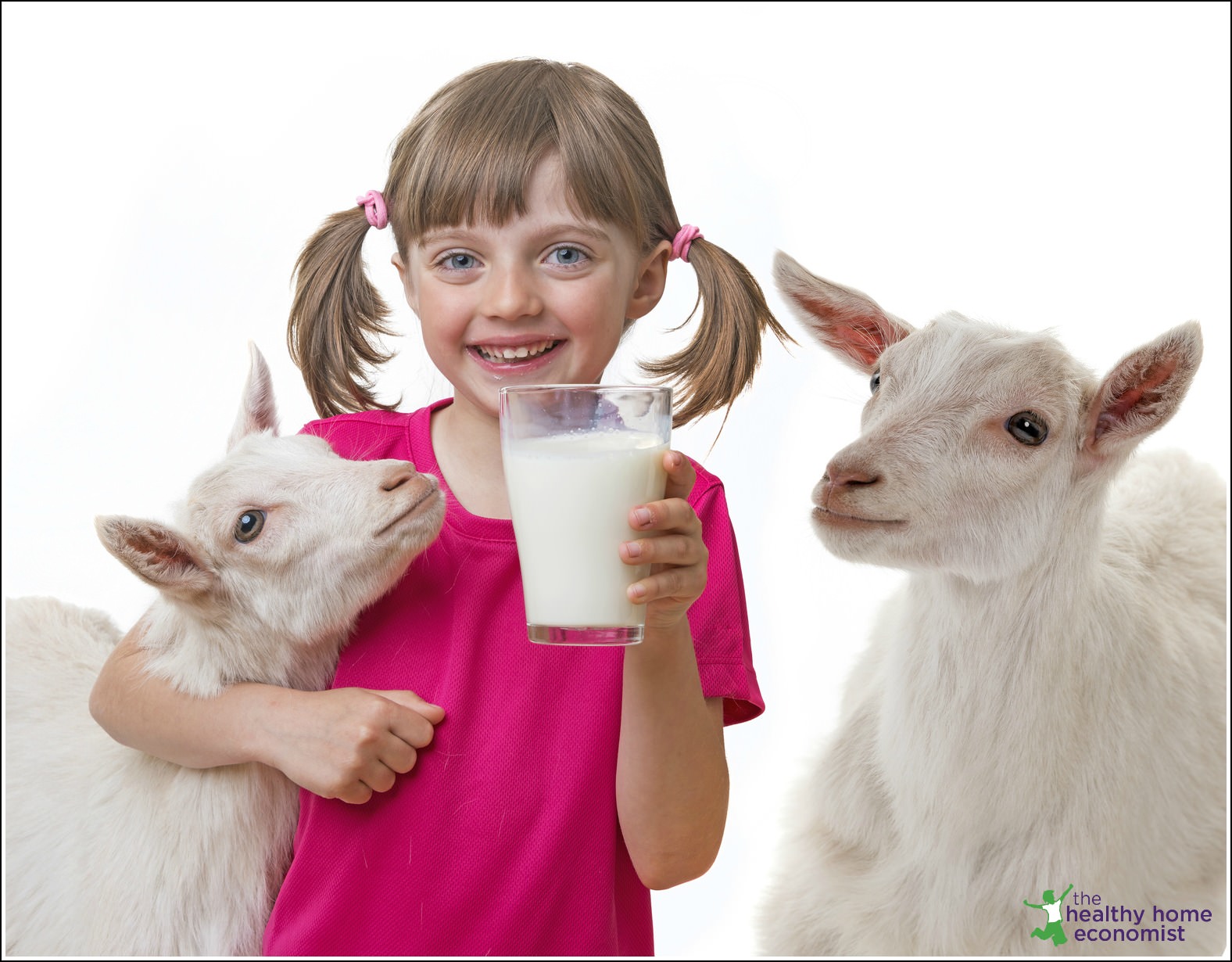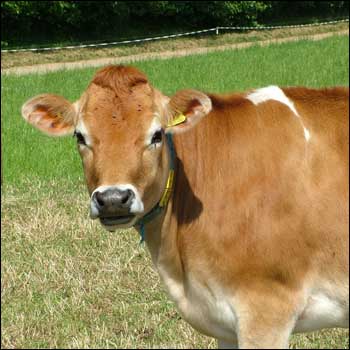Table of Contents[Hide][Show]
 I am fortunate where I live to have convenient access to high quality, farm fresh milk from both cows and goats for reasonable prices. My family enjoys both types of dairy although each member of the family tends to have a preference if given the choice of one over the other.
I am fortunate where I live to have convenient access to high quality, farm fresh milk from both cows and goats for reasonable prices. My family enjoys both types of dairy although each member of the family tends to have a preference if given the choice of one over the other.
One of my kids asked me the other day about goat milk versus cow milk and which was better than the other. Great question!
Goat Milk Advantages
The most significant difference between goat milk and cow milk is that fresh, unpasteurized cow milk forms a distinct creamline at the top and goat milk does not. The reason is that goat milk is naturally homogenized which means the fat molecules are smaller than in cow milk and so remain evenly dispersed throughout the milk. Incidentally, sheep milk is also naturally homogenized.
The smaller size of the fat globules seems to make goat milk more digestible for some people but not all. I personally find no difference in digestibility between the two.
While the protein structure of cow and goat milk is fairly similar, goat milk is missing an alpha casein present in cow’s milk. In addition, when you drink a glass of goat milk and it reacts with the acid in your stomach, the protein curds that precipitate are smaller in size and a bit softer than the ones that form with cow’s milk. This is another reason some folks find goat milk to be more easily digested than cow milk.
 Cow Milk Advantages
Cow Milk Advantages
Cow milk is higher is vitamin B12 which so many people are severely deficient in. Goat milk also lacks folic acid making cow milk more suitable for homemade infant formula in the event the mother cannot breastfeed.
Cow milk is also higher in B6 making it a better choice for pregnant mothers who have morning sickness. I myself suffered from B6 deficiency morning sickness and so found sipping fresh cow milk during the first trimester to bring immediate and welcome relief. Incidentally, B6 is destroyed by pasteurization so any sort of heat treated or pasteurized milk will not help in this regard. The milk must be farm fresh and preferably grassfed.
The Weston A. Price Foundation recommends adding 2 teaspoons organic raw chicken liver, frozen for 14 days, finely grated to each batch of the milk based formula if goat milk is used and encourages egg yolk feeding for babies to begin no later than four months old. If cow milk is used, egg yolk feeding can be started later if desired at 6 months.
Cow milk is usually more readily available than goat milk and is typically a lower cost per gallon making it more suitable for tighter budgets.
Sometimes I’ve heard folks say that they prefer the taste of cow milk because goat milk tastes goaty, but in my experience, goaty tasting goat milk is more a result of quality than anything. The goat milk I buy doesn’t taste goaty unless it is more than a week old (and then it only gets a slight goaty taste) and is generally very similar in taste to cow milk.
Goat Milk vs Cow Milk?
Ultimately, the choice of whether to drink fresh cow or goat milk is a personal preference. In my home, I have both available and while I prefer cow milk, I do enjoy goat milk kefir for my smoothies just to mix things up a bit and provide more variety to my diet. For straight drinking, my husband prefers goat milk but loves cow milk cream on his fruit. My kids generally prefer cow milk although they don’t mind a glass of goat milk when it is really fresh.
So what did I answer my child when he asked whether one milk was better than the other? I told him that it was kind of like the difference between turkey and chicken. They are both yummy and healthy and it’s perfectly ok to prefer one over the other or even drink both if you want to!
Sarah, The Healthy Home Economist
Sources and More Information








Leave a Reply